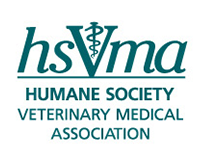| HSVMA Suggests Pet Owners Avoid Jerky Treats While Search for Cause of Illness Continues |
| News |
| Monday, October 28, 2013 01:44 PM |
|
The federal Food and Drug Administration has issued several warnings about jerky products, most of which are imported from China, since first receiving reports of pet illnesses in 2007. Despite ongoing efforts to identify a cause, testing has been inconclusive. On October 22, the regulatory agency released a progress report that revealed approximately 3,000 reports of illness and more than 580 deaths possibly related to the consumption of jerky treats. Later last week, on October 25, the agency issued new proposed standards governing oversight over the pet food industry, calling for makers of animal food sold in the U.S. to develop written plans to prevent food-borne illnesses, like salmonella. Producers would need to put protective procedures into place at critical points in the production process where problems are likely to arise. The reports of illness are related to jerky treats containing chicken, duck, sweet potato or dried fruit, and involve more than 3,600 dogs and 10 cats. Most of the complaints relate to treats made in China, a fact that has led many consumers to avoid any pet foods and snacks identified as being "made in China." The FDA suggests that avoiding products with such labels may not be enough: "Pet owners should be aware...that manufacturers do not need to list the country of origin for each ingredient used in their products." The complaints the FDA has received involve different sizes, ages and breeds of dogs. According to the report, "about 60 percent of the reports are for gastrointestinal illness (with or without elevated liver enzymes) and about 30 percent relate to kidney or urinary signs. The remaining 10 percent of cases involve a variety of other signs, including convulsions, tremors, hives, and skin irritation." Along with the report, the FDA released a Dear Veterinarian letter and has developed a Fact Sheet for pet owners, which the HSVMA encourages veterinarians to share with their clients. The letter is intended to let veterinarians know in advance what specific types of information would be most useful to receive when they report cases of suspected jerky pet treat-related illness to the agency. This data includes:
The agency is also requesting that veterinarians obtain a urine sample (10 ml if possible) from dogs or cats that may have illness associated with jerky treats and freeze it for Fanconi syndrome testing by the FDA’s Veterinary Laboratory Investigation and Response Network (Vet-LIRN). Fanconi syndrome is a specific kind of kidney disease associated with 135 of the kidney and urinary cases. This testing will allow the FDA to get a better idea of how many of the suspected cases involve Fanconi syndrome. Pet owners should pay attention for sudden symptoms after consuming jerky treats such as vomiting, diarrhea, increased thirst, increased urination, or lethargy, and to seek veterinary care if they occur. HSVMA senior veterinary medical advisor Barry Kellogg, VMD says "like any family member, we like to give our companions special treats, but be aware that that treats aren’t part of a balanced diet. Also, due to the fact that products using ingredients imported from China do not have to be labeled as such, be sure to consult with your veterinarian if you notice any signs of illness after feeding your pets treats." |
